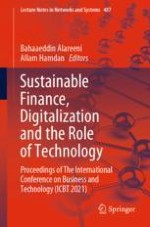This book constitutes the refereed proceedings of the International Conference on Business and Technology (ICBT2021) organized by EuroMid Academy of Business & Technology (EMABT), held in Istanbul, between 06–07 November 2021.
In response to the call for papers for ICBT2021, 485 papers were submitted for presentation and inclusion in the proceedings of the conference. After a careful blind refereeing process, 292 papers were selected for inclusion in the conference proceedings from forty countries. Each of these chapters was evaluated through an editorial board, and each chapter was passed through a double-blind peer-review process.
The book highlights a range of topics in the fields of technology, entrepreneurship, business administration, accounting, and economics that can contribute to business development in countries, such as learning machines, artificial intelligence, big data, deep learning, game-based learning, management information system, accounting information system, knowledge management, entrepreneurship, and social enterprise, corporate social responsibility and sustainability, business policy and strategic management, international management and organizations, organizational behavior and HRM, operations management and logistics research, controversial issues in management and organizations, turnaround, corporate entrepreneurship, innovation, legal issues, business ethics, and firm governance, managerial accounting and firm financial affairs, non-traditional research, and creative methodologies.
These proceedings are reflecting quality research contributing theoretical and practical implications, for those who are wise to apply the technology within any business sector. It is our hope that the contribution of this book proceedings will be of the academic level which even decision-makers in the various economic and executive-level will get to appreciate.
